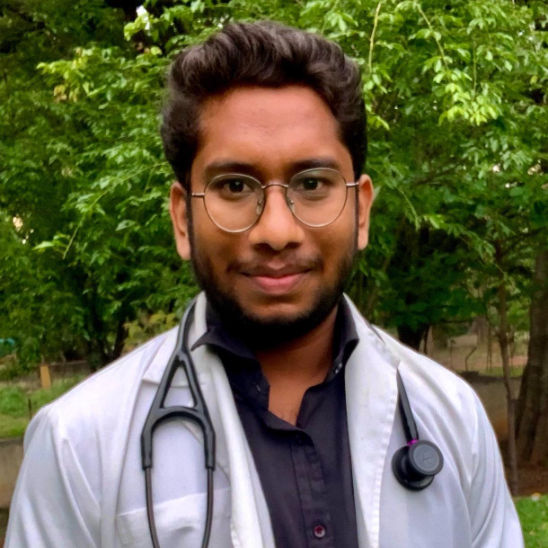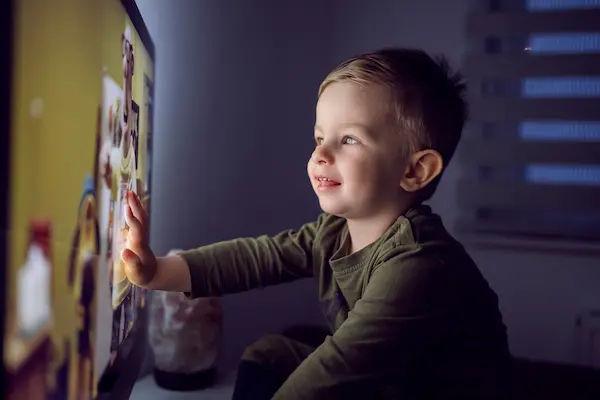Safe Ways to Dispose of Expired Medicines at Home
Need expired medicine disposal at home? Follow simple, safe health tips for take-back, trash, and flush-list meds to protect your family, pets, and water.

Written by Dr. Md Yusuf Shareef
Reviewed by Dr. Dhankecha Mayank Dineshbhai MBBS
Last updated on 13th Jan, 2026

Introduction
Old pills in the bathroom cabinet aren’t just clutter; they can be unsafe if swallowed by a child or pet, misused by someone else, or harmful to the environment if tossed the wrong way. This guide walks you through expired medicine disposal at home with simple, safe health tips you can trust. You’ll learn when to use a take-back program, how to safely put medicines in the household trash, and when flushing is recommended for certain high-risk medicines.
What is “Expired Medicine Disposal,” and Why is it Important?
Expired medicine disposal means getting rid of medicines that are no longer needed, are past their expiration date, or are damaged. Proper disposal helps:
• Prevent accidental poisonings and overdoses
• Reduce misuse of prescription drugs
• Protect pets and wildlife
• Lower the risk of trace drug residues entering the environment
The Best Option: Medicine Take-Back Programs
The safest and most preferred method is to use a take-back program. These programs ensure medicines are handled and destroyed correctly.
Where to Find Take-Back Options?
• Permanent drop boxes: Many pharmacies, hospitals, and law enforcement offices accept unused medicines year-round.
• DEA National Prescription Drug Take Back Day: A nationwide event (usually held twice a year) with temporary drop-off locations.
• Mail-back envelopes: Some pharmacies or health plans offer prepaid mail-back kits.
What to bring?
• Most prescription and over-the-counter (OTC) pills, patches, and liquids
• Controlled medicines (such as certain pain medicines) are accepted at authorized locations
Before You Go
• Keep medicines in their original containers if possible
• Remove or black out your personal information on the label to protect your privacy
• Check the site’s rules (some locations can’t accept needles, inhalers, or liquids)
Consult a Top General Physician
No Take-Back Nearby? How To Dispose Of Medicines In Household Trash?
If you cannot access a take-back option, most medicines can go into your household trash by following these steps recommended by experts:
Step-By-Step
1) Remove the medicine from its original container.
2) Mix the medicine (do not crush tablets or capsules) with an unappealing substance like used coffee grounds, dirt, or cat litter.
3) Place the mixture in a sealed bag, empty can, or other closed container to prevent leaks.
4) Throw the container in your household trash.
5) Scratch out or peel off your personal information on the medicine label, then recycle or discard the empty packaging.
Why Mix With Something Unappealing?
It discourages children, pets, or anyone searching the trash from finding and taking the medicine.
When Is Flushing Recommended?
Flushing is not for most medications. However, a small number of medicines pose a high risk if accidentally taken; even one dose can be life-threatening. For these, if a take-back program is not available, the U.S. Food and Drug Administration (FDA) recommends flushing right away. These medicines are on the FDA’s “Flush List” and include certain strong pain medicines (such as fentanyl patches) and a few others.
Key Points
• Only flush medicines on the FDA Flush List.
• If a take-back option is available, that is still preferred.
• The FDA recommends flushing Flush List medicines when immediate disposal is needed because the risk of accidental exposure outweighs potential environmental concerns for this small group of drugs.
Special Items And How To Handle Them?
Some products require a bit more care. When in doubt, check the product’s instructions or consult your pharmacist.
Fentanyl And Other Medicated Patches
• If on the FDA Flush List and no take-back is available, fold the patch so the sticky sides stick together and flush it.
• If not on the Flush List and take-back is unavailable, follow the household trash steps, folding the patch so it cannot be reused.
Inhalers And Aerosol Products
• Inhalers contain pressurized propellants and may be hazardous if punctured or incinerated.
• Do not crush, burn, or puncture inhalers.
• Ask your pharmacist or local waste authority about take-back options or hazardous waste collection. Many communities have specific guidance for inhalers.
Needles, Syringes, And Sharps
• Do not place loose needles or sharps in household trash, and never flush them.
• Use an FDA-cleared sharps container or a heavy-duty plastic container with a tight screw-on lid (like a laundry detergent bottle).
• Follow your local guidelines for drop-off sites, mail-back programs, or community sharps disposal options.
Liquids, Creams, And Eye Drops
• If no take-back is available, mix liquids with an unappealing substance (cat litter, dirt) and seal in a leakproof container before putting in the trash.
• Ointments, creams, and gels can be squeezed into a bag with an unappealing substance and sealed before trashing.
Antibiotics, Other Meds, And Supplements
• Treat them like other medicines: take-back is preferred. If not available, follow the household trash steps.
• Vitamins and dietary supplements can be disposed of the same way.
What Not To Do?
• Do not share your prescription medicines.
• Do not pour liquid medicines down the sink or toilet unless they are on the FDA Flush List and no take-back option is available.
• Do not burn medicines or crush tablets/capsules for disposal.
• Do not throw loose pills directly into the trash.
Safe Storage To Prevent Waste And Protect Your Household
Disposal is only part of the picture. Good storage reduces the chances that medicines expire or get misused.
Safe Storage Tips
• Keep medicines up, away, and out of sight, ideally in a locked cabinet, especially if children or teens are in the home.
• Store most medicines in a cool, dry place (not in a steamy bathroom).
• Keep medicines in their original containers with labels intact.
• Regularly review your medicines and set reminders to check for expiration dates.
Reducing Leftovers: Practical, Safe Health Tips
• Ask for smaller quantities if you’re trying a new medicine.
• Talk to your clinician about the expected duration of therapy before filling large supplies.
• For pain medicines after surgery or dental work, ask about non-opioid options or the smallest effective amount.
• Only keep what you truly need, and plan a reminder to dispose of extras once you’re done.
Protecting The Environment
Unused and improperly discarded medicines can contribute to accidental exposure and trace contamination. The most protective options are:
• Use take-back programs whenever you can.
• Use household trash disposal steps correctly if take-back is unavailable.
• Reserve flushing for FDA Flush List medicines when immediate disposal is necessary and no take-back option exists.
Quick Checklist For Expired Medicine Disposal At Home
• Prefer a pharmacy or law enforcement take-back program.
• If no take-back is available:
• Mix medicines (do not crush) with an unappealing substance.
• Seal the mixture in a bag or container.
• Put it in the household trash.
• Remove or black out personal info on labels.
• Flush only medicines on the FDA Flush List when take-back isn’t available and quick disposal is needed.
• Follow special handling for patches, inhalers, and sharps.
Consult a Top General Physician
Consult a Top General Physician

Dr. Chethan T L
General Physician/ Internal Medicine Specialist
5 Years • MBBS, MD, DNB (General Medicine)
Bengaluru
Apollo Medical Center, Marathahalli, Bengaluru

Dr. Siri Nallapu
General Practitioner
5 Years • MBBS
Hyderabad
Apollo 24|7 Clinic, Hyderabad

Dr. Tanmaya Kumar Sahu
General Physician/ Internal Medicine Specialist
12 Years • MBBS, MD ( Internal Medicine )
Bhubaneswar
Apollo Hospitals Old Sainik School Road, Bhubaneswar
(25+ Patients)

Dr. Thorana Prakash M
General Physician
2 Years • MBBS
Bengaluru
PRESTIGE SHANTHINIKETAN - SOCIETY CLINIC, Bengaluru

Dr. Swagato Podder
General Practitioner
5 Years • MBBS
Kolkata
GRD POLYCLINIC, Kolkata
Consult a Top General Physician

Dr. Chethan T L
General Physician/ Internal Medicine Specialist
5 Years • MBBS, MD, DNB (General Medicine)
Bengaluru
Apollo Medical Center, Marathahalli, Bengaluru

Dr. Siri Nallapu
General Practitioner
5 Years • MBBS
Hyderabad
Apollo 24|7 Clinic, Hyderabad

Dr. Tanmaya Kumar Sahu
General Physician/ Internal Medicine Specialist
12 Years • MBBS, MD ( Internal Medicine )
Bhubaneswar
Apollo Hospitals Old Sainik School Road, Bhubaneswar
(25+ Patients)

Dr. Thorana Prakash M
General Physician
2 Years • MBBS
Bengaluru
PRESTIGE SHANTHINIKETAN - SOCIETY CLINIC, Bengaluru

Dr. Swagato Podder
General Practitioner
5 Years • MBBS
Kolkata
GRD POLYCLINIC, Kolkata
More articles from General Medical Consultation
Frequently Asked Questions
1. Can I throw all medicines in the trash?
No. Most medicines can go in the trash after mixing with an unappealing substance and sealing them in a container. But some high-risk medicines are on the FDA Flush List and should be flushed if no take-back option is available. Sharps (needles, syringes) and some inhalers require special handling; check local guidance or ask a pharmacist.
2. When is it okay to flush medicine?
Only when the medicine is on the FDA Flush List and a take-back option is not available. The Flush List includes a small number of medicines that can cause life-threatening harm with just one dose if accidentally taken. For all other medicines, use take-back programs or the household trash steps.
3. How do I find a take-back program near me?
Ask your local pharmacy, call your city or county waste authority, or use online tools from federal agencies to find authorized collectors and periodic Drug Take Back Day events. Many pharmacies also offer mail-back envelopes.
4. What should I do with needles, syringes, or EpiPens?
Use an FDA-cleared sharps container or a sturdy household container with a tight, puncture-resistant lid (like a detergent bottle). Follow your local rules for sharps drop-off sites, mail-back programs, or special collection events. Never throw loose sharps in the trash and never flush them.
5. Do the same rules apply to vitamins, supplements, and pet medicines?
Generally yes. Take-back is preferred. If that’s not available, dispose of them in your household trash by mixing with an unappealing substance, sealing the mixture, and removing your personal info from labels. For pet sharps or special veterinary products, ask your vet for disposal guidance.

.webp)


